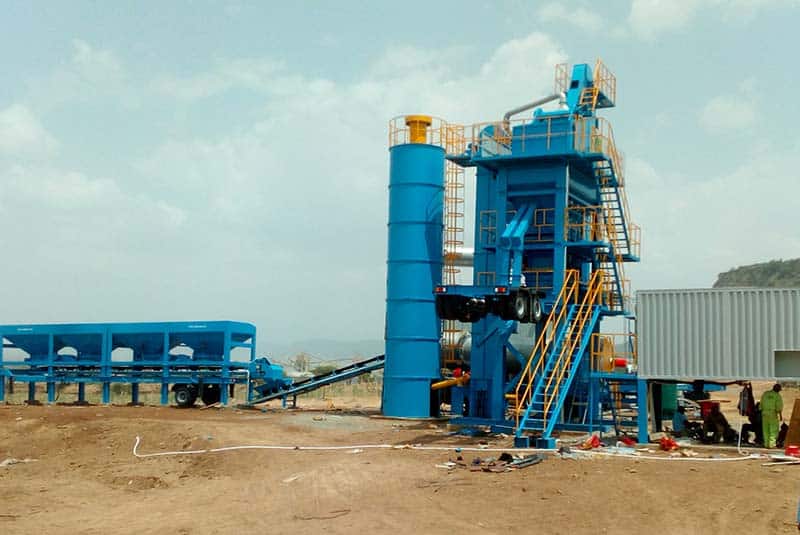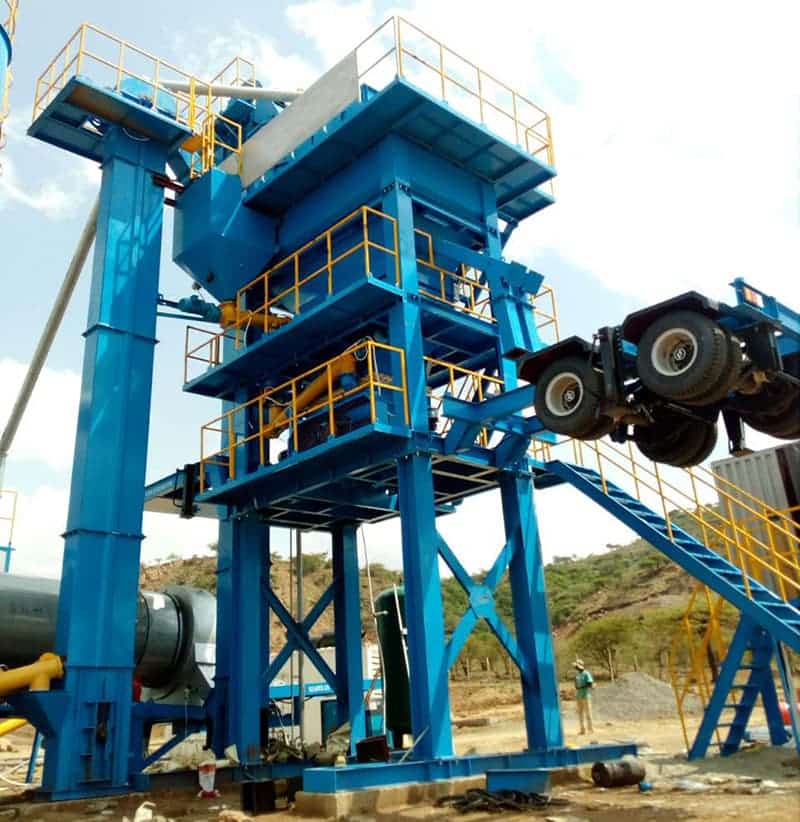What is an Asphalt Mixing Plant?
Last Updated: 2025-08-20
An Asphalt Mixing Plant is a specialized facility used to produce hot mix asphalt (HMA) and cold mix asphalt by blending bitumen with aggregates. These plants are essential for road construction, paving, and infrastructure development, providing the materials needed for durable, high-quality road surfaces.
In this article, we’ll explore the different types of asphalt plants, their components, and how they contribute to road construction projects.
Types of Asphalt Mixing Plants
There are primarily two types of asphalt mixing plants:
1. Batch Mix Asphalt Plant
Batch mix plants produce asphalt in batches, ensuring precise control over the mixing process. The plant heats aggregates and bitumen separately, combining them in batches for specific mix designs. This type of plant is ideal for smaller projects or when custom asphalt mixes are required.
2. Drum Mix Asphalt Plant
Drum mix plants continuously produce asphalt by combining aggregates and bitumen in a rotating drum. This type of plant is more efficient and faster than batch mix plants, making it suitable for large-scale road construction projects with high production demands.

Key Components of an Asphalt Mixing Plant
An asphalt mixing plant consists of several key components, each playing a vital role in the asphalt production process:
1. Cold Aggregate Feeders
Cold aggregate feeders are bins that store different types of aggregate materials, such as sand, gravel, and crushed stone. These materials are fed into the plant for heating and mixing.
2. Drying Drum
The drying drum is responsible for heating the aggregates to remove moisture. The drying process ensures that the aggregates are dry before being mixed with bitumen, which is crucial for producing high-quality asphalt.
3. Bitumen Tank
The bitumen tank stores and heats the bitumen (a type of liquid petroleum). Bitumen is mixed with the heated aggregates to form the asphalt. It must be heated to the right temperature for proper mixing and consistency.
4. Mixing Tower
In the mixing tower, the heated aggregates and bitumen are combined to form the final asphalt mix. The tower ensures that the materials are blended thoroughly to achieve a uniform mixture.
5. Control System
Modern asphalt plants are equipped with sophisticated control systems. These automated systems allow operators to monitor and adjust the entire production process, ensuring that the asphalt mix meets the required specifications and quality standards.
Advantages of Asphalt Mixing Plants
Asphalt Mixing Plants offer several benefits, particularly when it comes to road construction:
1. High Efficiency
The continuous nature of drum mix plants and the precision of batch mix plants make asphalt production more efficient, helping reduce project timelines.
2. Customizable Mixes
Batch mix plants allow for the production of customized asphalt mixtures, making them ideal for projects that require specific mix designs.
3. Environmental Benefits
Many modern plants are designed to be energy-efficient and environmentally friendly. The incorporation of Reclaimed Asphalt Pavement (RAP) systems allows plants to reuse waste asphalt, reducing environmental impact.

Choosing the Right Asphalt Mixing Plant
When selecting an asphalt mixing plant, several factors must be considered:
Project Scale: Small mobile plants are ideal for smaller, localized projects, while large stationary plants are best for high-capacity projects.
Production Rate: Depending on the project’s requirements, you’ll need to choose a plant that can produce the necessary volume of asphalt in the required time frame.
Mix Design: If specific mix designs are needed, a batch mix plant may be more suitable, while drum mix plants are better for large-scale production with standard mixes.
Conclusion
An Asphalt Mixing Plant is a vital piece of equipment in the construction of roads and infrastructure. By understanding the different types of plants, their components, and their benefits, you can better appreciate their role in producing high-quality asphalt for various construction projects. Whether for small urban roads or large highways, choosing the right asphalt plant ensures that the pavement is durable, smooth, and long-lasting.
TAG: asphalt mixing plant
